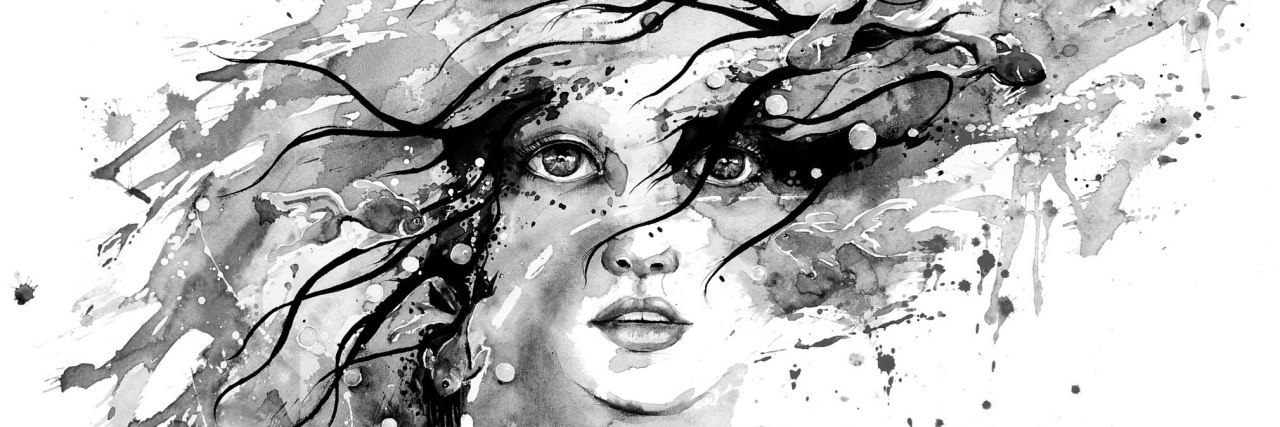What It's Like to Live With the Black and White Thinking of Anorexia
Editor's Note
If you live with an eating disorder, the following post could be potentially triggering. You can contact the Crisis Text Line by texting “NEDA” to 741741.
For me, anorexia is a clearly-defined world. It’s a landscape shaped by “good” foods and “bad,” all of which are judged and measured by their caloric value. The numbers on a scale and my beliefs around them were absolute, and these boundaries offered me a curious comfort when I was unwell.
One of the most difficult parts of my recovery was relinquishing that comfort.
Referred to in psychology as “splitting,” black and white thinking is defined as, “a failure in one’s thinking to bring together the dichotomy of both positive and negative qualities of the self and others into a cohesive, realistic whole.”
There is so much in this definition that resonates with my experience of anorexia, not just in the way I approached eating, but also the internal dialogue that insisted I was utterly failing to deal with my illness, and with life in general. There was no good and bad. I was just bad.
An all-or-nothing mindset is a huge impediment to recovery, yet it seemed that my medical treatment only exacerbated the rigid mindset my illness created (or at least reinforced).
The doctors’ attitude was that I was a good girl if I put on weight and bad if I didn’t, and I readily took that on. The hospital re-feeding regime was inflexible and taught me nothing about relaxing my approach to food. The medical team judged each food to be good or bad based it how nutrient dense it was, and how beneficial it would be to my weight restoration. What about taste? I now wonder. What about eating for the pure pleasure of it?
The hospital provides a safe highly-structured world that many people with anorexia embrace. But the world is a messy, chaotic place, and I knew if I was to return to it after my discharge, I had to let go of the beliefs, thought processes and behaviors that had restricted my life and brought such torment.
The first step was to acknowledge the self-defeating beliefs I held. Food had no intrinsic power — I gave it power. I did not pass or fail with my eating — I just ate. I had to change my mindset so it was OK to give every meal my best shot and hopefully make some progress, and forgive myself if it didn’t go well. Praise myself for trying.
Anorexia is about perfection so accepting that near enough is good enough challenges the illness at its core. Self-denigration was so instinctive that I would automatically berate myself every time I became anxious about eating with people, trying a new restaurant or even introducing a new food. But over time, I became mindful of this, and tried to counteract my instinctive negativity with positive statements about how I was moving beyond my self-imposed limits.
There is extensive research on how our thoughts shape our reality and letting more compassionate thoughts about my recovery into my inner world was tough. It was like I was letting myself off the hook.
Over time, I came to realize the standards I set for myself were impossible. I wouldn’t impose them on anyone else and would never expect other people to live up to them. So why did I expect that of myself? Why wasn’t I allowed to be human and sometimes fall short?
In retrospect, I can see that my eating was metaphor for my life. As I got comfortable taking risks by putting myself in social situations where I wasn’t in control of food, I began taking risks in other areas of my life. Sometimes they worked out and sometimes they didn’t. That’s life.
What I learned as I went through the difficult process of discarding my black and white thinking is that is if you accept the many shades of gray, sometimes rainbows will appear.
Getty Images photo via Dreya Novak

